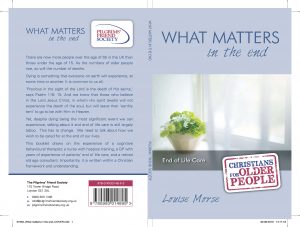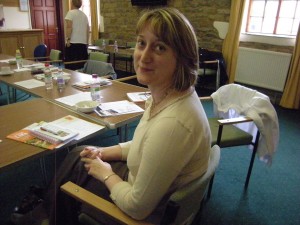 A couple of weeks ago was a little news item that was not widely picked up by the media, though it did get a mention here and there. A survey of nurses by the Nursing Standard and Marie Curie showed that two thirds said they did not have enough time to give good end of life care.
A couple of weeks ago was a little news item that was not widely picked up by the media, though it did get a mention here and there. A survey of nurses by the Nursing Standard and Marie Curie showed that two thirds said they did not have enough time to give good end of life care.
Not much seems to have changed since a TV Panorama report in 2005 that featured a film taken by an undercover TV crew showing disturbing evidence of hospital nurses failing to give even basic care to frightened and dying patients.(1)
In the intervening years there have been so many similar accounts. But nothing, it seems, has changed.
This morning (1st March) BBC News interviewed a listener whose husband had wanted to die at home, but who was prevented because District Nurses in her region had not been trained in the use of a particular drain cannular. She asked if she could be trained to do it herself, but her request was denied. The report concluded that end of life care is a post code lottery in the UK, from being good in some parts of the country and very poor, or even non existent in others. Apart from the interview (which was so sad), the news item could have been lifted, word for word, from a BBC report in December 2010, which said exactly the same thing… stories of elderly patients dying alone and others going without pain killing medication for hours on end.
How callous has our society become? Don’t we realise that when the bell tolls it tolls for us all?

Our Plymouth home manager, Emma Hughes, is a nurse specialist in end of life care. It upsets her to read accounts like this. She insists that a peaceful death is possible for everyone. Her home (Bethany) practice has been certified by St. Luke’s Hospice as providing excellent end of life care, and she trains others in Pilgrim Homes to the same standard. Emma will be speaking on this at our AGM Conference in Leicester, on 13th May and if you can get there, make every effort!
Emma also made a major contribution to our booklet, ‘What Matters in the End’, which looks at end of life care from a spiritual, as well as psychological and practical aspects. It’s available from our website at: http://www.pilgrimsfriend.org.uk/christians-for-old-people/resources/ Reading it will tell you how to talk about dying and about setting plans in place well before they’re needed; what the NHS has promised to provide (so you could point it out if you have a relative in this situation), and more. Readers have said how good it is to have this information within a Christian context.
(1) http://www.dailymail.co.uk/health/article-356403/Nurses-busy-care-dying-patients.html#ixzz4a5AAJD2U
(2) http://www.bbc.co.uk/news/health-11902757
(4) http://www.dailymail.co.uk/health/article-356403/Nurses-busy-care-dying-patients.html














